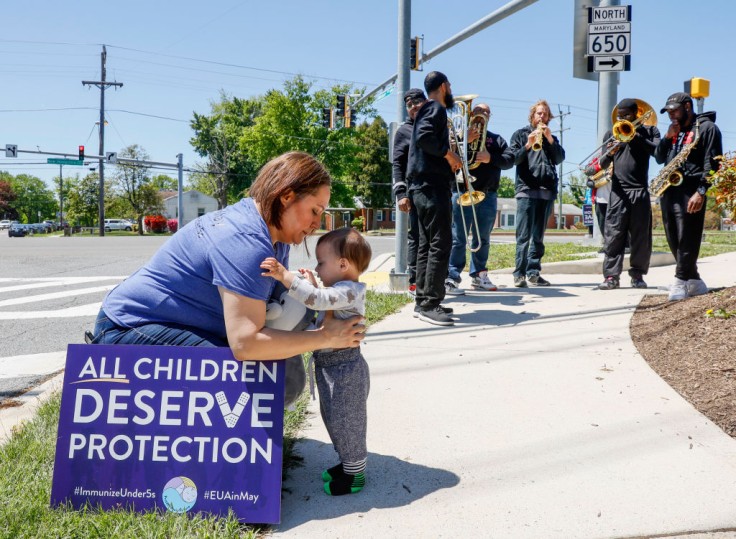
After multiple delays, young children under 5 years old are finally eligible for COVID-19 vaccination. FDA has already authorized emergency use of Pfizer and Moderna vaccines.
There are an estimated 18 million children in the United States that are under the age of 5, and on a national level, roughly only 5 percent are fully vaccinated, according to Centers for Disease Control and Prevention (CDC) as of Oct. 13. There are only 3 percent for ages 2 to 4, while only 2 percent for under the age of 2, as compared to the 32 percent of fully vaccinated children at the age of 5 to 11, and 60 percent for age 12 to 17.
While some parents are eager to vaccinate their children, there are others who are very hesitant and have lingering questions - Are the vaccines safe and worth it? How effective are they against Omicron? Should a child who recently had COVID-19 get vaccinated? Can the kids not have vaccination entirely?
Yale Medicine pediatrician Leslie Sude, MD, emphasized that opening vaccination to kids under 5 is truly another way to "manage the pandemic" and ensure the safety of everyone.
Pfizer and Moderna Clinical Trials
"While a significant proportion of the population was not eligible for vaccination, there was still the opportunity for widespread circulation of COVID among children, who could then keep transmitting it to older people. And as long as the virus spreads from person to person, the virus can keep changing and evolving into new variants," Sude explained.
To answer parent's question about the safety of the vaccines, Sude and Thomas Murray, MD, PhD, a pediatric infectious diseases specialist, emphasized that Pfizer and Moderna, in order to get FDA's emergency use authorization, separately presented results of clinical trials that showed their vaccines as both safe and effective for the young age group
The results are preliminary and have not yet been peer-reviewed or published in academic journals, yet the data was reviewed not only by the Food and Drug Administration (FDA) but also by a group of independent vaccine experts.
FDA released its own analysis of the vaccines, ensuring that no safety concerns were raised and the vaccines were effective.
Pfizer gathered 4,500 children for its clinical trials. For kids ages 5 and under, 1,678 received 2 doses for 3 weeks apart and then they were given the 3rd dose at least two months after the second dose. The trial showed that the vaccine was well tolerated by the kids and that there were no new safety issues signaled. In terms of side effects, they were reported to only be mild and moderate.
Moderna, on the other hand, enrolled around 11,700 kids ages 6 months to 12 years in their studies, with 6,700 kids under 6 years old. All received 2 doses of the vaccine, 28 days apart. It was reported that the majority of side effects for those kids under the age of 6 were only mild and moderate, and which happened mostly in the 2nd dose. Like Pfizer, there were no safety concerns identified.
No cases of myocarditis or pericarditis, a condition which involves inflammation of the heart muscle and surrounding tissue, were found in both vaccines.
Read Also : Long Wait is Finally Over for US Parents as CDC Approves COVID Vaccines for Youngest Children
Hybrid immunity is best
For parents questioning the effectiveness of the vaccines, Sude and Murray have this to say.
Following a 3rd dose of the Pfizer vaccine, kids 5 and below "elicited a strong immune response, and efficacy was 80.3 percent in preventing symptomatic infection." However, it is best to take note that parts of the studies of Pfizer took place before the Omicron variant came out.
Moderna did studies during the Omicron wave and they found that the vaccine was 51 percent effective against symptomatic infection among kids from 6 months to 2 years, and 37 percent effective from the 2 to 5 years old age group.
Further, the FDA stated that vaccine efficacy was "significantly lower for both vaccines in these age groups," as compared with their efficacy in adults, Yale Medicine reported.
Sude and Murray would also like to inform parents that the dosage for kids and adults are not the same.
As for Pfizer, kids under age 5 receive only 3 3-microgram doses, 5 to 11 years old receive 2 10-microgram doses, and teens 12 and up receive 2 30-microgram doses, the same for adults.
For Moderna, kids under age 6 receive 2 25-microgram doses, 6 to 12 years old receive 2 50-microgram doses, and teens 12 and up receive 2 100-microgram doses.
For children who already got the COVID-19 virus, the doctors still encourage parents to have their kids vaccinated as the "hybrid immunity" or natural infection with vaccination is still the best type of immunity for children and adults.
Related Article: COVID Vaccines for Children Updated as Omicron Booster Shots Cleared for Kids as Young as 5